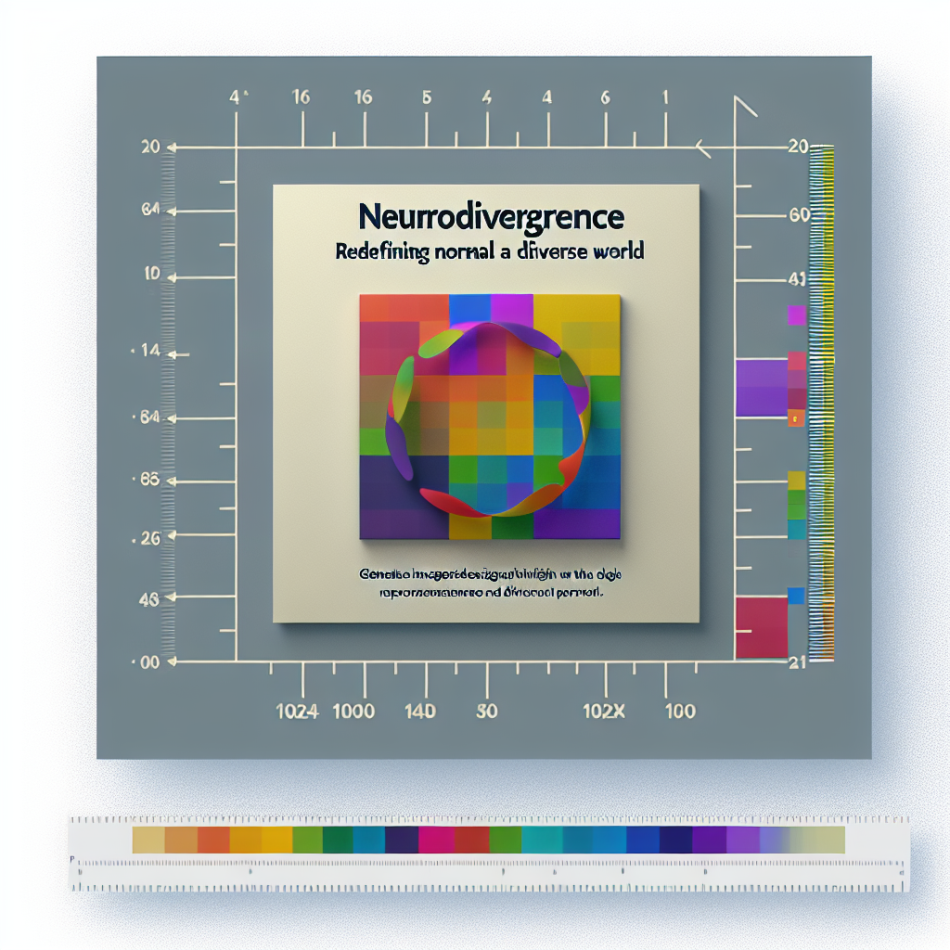Neurodivergence: Redefining “Normal” in a Diverse World
For decades, neurodivergent individuals—such as those with autism, ADHD, or dyslexia—have been viewed through a lens of deficit, their differences framed as disorders to be “fixed”. But a paradigm shift is underway. This article explores how moving from pathologising neurodivergence to recognising it as natural human variation benefits individuals and society, dismantling harmful stereotypes and fostering inclusivity.
The Harmful Legacy of Deficit-Based Models
Traditional medical and psychological frameworks have long categorised neurodivergence as a collection of symptoms to diagnose, treat, or cure. This deficit-based approach prioritises conformity to neurotypical standards, often ignoring the unique strengths and perspectives neurodivergent people bring. For example, autism was historically defined by challenges in social communication, while overlooking traits like attention to detail or innovative problem-solving.
Such models perpetuate stigma, framing neurodivergence as a failure to meet societal norms. This leads to marginalisation in education, employment, and healthcare. Children labelled as “disordered” internalise shame, while adults face barriers to accessing accommodations. The focus on “normalisation” overlooks a critical truth: neurodiversity is a natural, valuable part of human evolution.
Neurodiversity: A Radical Rethinking of Human Differences
The neurodiversity movement, pioneered by autistic activists in the 1990s, challenges the idea that there is one “correct” way for brains to function. Instead, it positions neurodivergence as a form of biological diversity, akin to differences in ethnicity or sexuality. This perspective argues that societal structures—not individual neurology—create disability. For instance, a dyslexic person may struggle in a text-heavy education system but excel in visual or hands-on learning.
Key principles of this framework include:
- Rejecting the hierarchy of “normal vs abnormal” brains
- Valuing neurodivergent perspectives as critical to collective progress
- Designing inclusive systems that accommodate diverse cognitive styles
Strengths-Based Approaches in Practice
Embracing neurodiversity isn’t about ignoring challenges but reframing support to focus on empowerment. Schools adopting universal design for learning (UDL), for example, provide multiple ways to engage with material—benefiting all students, not just neurodivergent ones. Similarly, companies like Microsoft and SAP actively recruit autistic employees for their analytical skills and innovative thinking.
In mental health, strengths-based therapies help individuals harness traits like hyperfocus (common in ADHD) or pattern recognition (in autism) to build confidence. This contrasts with traditional interventions aimed at suppressing “undesirable” behaviours, which often erode self-esteem.
The Societal Cost of Ignoring Neurodiversity
When systems prioritise neurotypical norms, everyone loses. Consider how standardised testing disadvantages dyslexic students, or how open-plan offices overwhelm sensory-sensitive individuals. These “one-size-fits-all” structures stifle potential and perpetuate inequity. Research shows that neurodivergent employees often excel in roles requiring creativity or precision, yet unemployment rates remain disproportionately high due to rigid hiring practices.
Economically, this exclusion has consequences. A 2023 UK study estimated that better support for neurodivergent workers could contribute £25 billion annually to the economy. Socially, it fuels mental health crises: autistic adults, for instance, face significantly higher rates of anxiety and depression linked to societal rejection.
Building a Neuro-Inclusive Future
Progress requires systemic change. Education systems must move away from deficit-focused special needs programmes towards flexible, inclusive curricula. Workplaces need to adopt neurodiversity training and reasonable adjustments, such as sensory-friendly environments or alternative communication methods. Policy changes, like the UK’s Autism Act 2009, are vital but must be enforced with meaningful funding and accountability.
Critically, neurodivergent voices must lead this conversation. Too often, decisions about accommodations are made without their input, resulting in well-intentioned but ineffective solutions. “Nothing about us without us” isn’t just a slogan—it’s a necessity for genuine inclusion.
Conclusion: Diversity as the Default, Not the Exception
The shift from “broken” to “different” isn’t mere semantics—it’s a reimagining of human potential. By rejecting deficit-based thinking, we create space for neurodivergent individuals to thrive as their authentic selves. This benefits everyone: diverse minds drive innovation, empathy, and resilience in an increasingly complex world. The challenge ahead lies not in changing individuals, but in reshaping systems to celebrate cognitive diversity as the norm.
